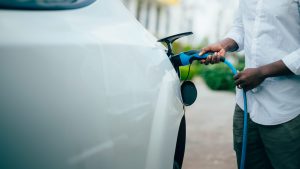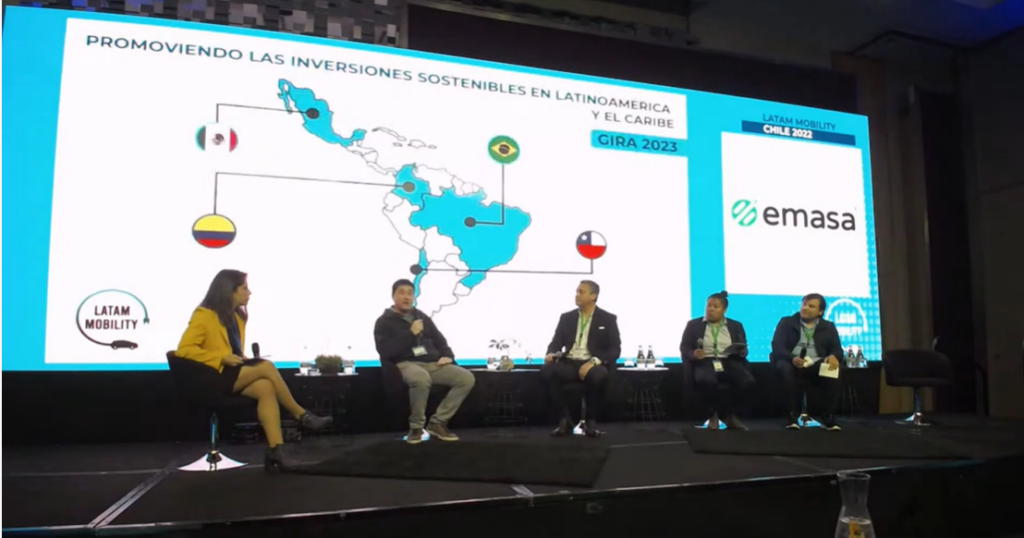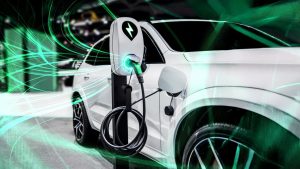
Chilexpress, Falabella.com, Spread and Zipline Set Out Sustainable Mobility Strategies to Boost Decarbonization of Last-Mile Deliveries

The confinement caused by Covid-19 generated an accelerated growth of e-commerce. In 2020 alone, 90% of the world’s population admitted to shopping online, according to Statista.
This scenario opened the door for last-mile delivery companies to expand their operations and revenues, but also their challenges. The transportation sector, at least in Chile, is responsible for 18% of carbon emissions.
Thus, the leading sustainable mobility community in Latin America, Latam Mobility, organized a meeting consisting of two days held on August 30 and 31, where leading companies dedicated to last mile deliveries such as Chilexpress, falabella.com, Spread and Zipline, exposed the main challenges of the sector and its decarbonization projects.
Under the moderation of Pilar Henriquez, Manager Mobility & Strategy Consulting of Hinicio, the panelists communicated how their companies are implementing actions in favor of sustainable mobility.
Chilexpress: Over 9 Years Committed to Sustainability
In 2013, Chilexpress implemented its first sustainability strategy even when the rules of the sector were not entirely clear, which has allowed the company to currently have a fairly clear picture. This was made known by the company’s Director of Engineering and Development, Cristián González, during his presentation.
A Challenging Road with Concrete Actions
A 30% reduction in energy consumption in the first 7 years of the decarbonization initiative and a 60% reduction by 2020 are some of the actions that Chilexpress has taken.
But in the coming years, the company is looking for more ambitious goals: “Last year we started a second path. By 2035 we hope to have zero net emissions. It has been hard work but now we are seeing great results,” said González.
Decentralization: One of the Keys
“Solutions must be decentralized, so we have chosen to generate real actions. From Chilexpress we are implementing a fleet of 120 electric vehicles that we will progressively launch this week, 30 of which will go to the regions”, were the words of the director.
Drones: Zipline’s Solution
Lenica Morales, Regulatory Affairs Director at Zipline, began her presentation by offering a summary of the operations of the brand she represents: “We are an instant logistics company, also known as last mile, that uses a fleet of drones to make deliveries on a global scale”.
Morales continued: “The drones we use work and operate from our distribution center and have a radius of 200 km. The batteries they have allow us to make deliveries within two hours, moving a load of a maximum of 3 kilograms”.
Expansion is the Next Step
“When we talk about our emissions, we can say that with our drones we use less energy than a toaster oven, so basically the sustainable strategy that is in focus is the expansion of our network. This leads us to a scenario of high demand to which we can only respond by globalizing our operations, but acting locally,” she said.
Morales concluded by stating that Zipline’s main challenge is to work with the authorities to secure access to airspace, which will allow them to expand.
Falabella.com and the Commitment to Friendly Deliveries
The Falabella Group’s ecommerce platform, falabella.com, has a long-term sustainability strategy that is reflected in the launch of its fleet of zero-emission vehicles.
Patricio González, Transportation Manager of the company, noted: “Today we have 75 electric vehicles operating in Chile, including tricycles, vans and trucks for transporting large products”.
Promoting Third-party Sustainability
The executive commented that he has urged his logistics partners to invest in electric fleets: “We help to make their investments profitable. We know that the charging infrastructure for electric fleets has its restrictions, and there is also the limitation of autonomy: one hour of charging affects efficiency and reduces turnover, so we also contribute by optimizing routes”.
Spread: Green Start-up with over 200,000 Monthly Deliveries
“A young company with big challenges”. This is how Spread, a nascent last-mile logistics startup with an electric fleet distributed in 8 regions of the country, is described, which was represented by its Co-Founder, Felipe Ovalle.
“We have made the decision to incorporate a sustainable mobility model. We believe that electromobility is part of the construction of this path, we have already advanced from scratch and that means a lot. We have a fairly successful strategy at the technological level that allows us to make deliveries more efficient and therefore explore and enhance the efficiency of vehicles,” added Ovalle at the beginning of his speech.
The Public Sector Must Get Involved
Ovalle suggested that the market must grow a lot in terms of infrastructure and several factors such as incentives and regulatory issues must be united in order to obtain financing to strengthen the entire sector.
In the following video, you will be able to view the discussion held during the morning of August 31.





